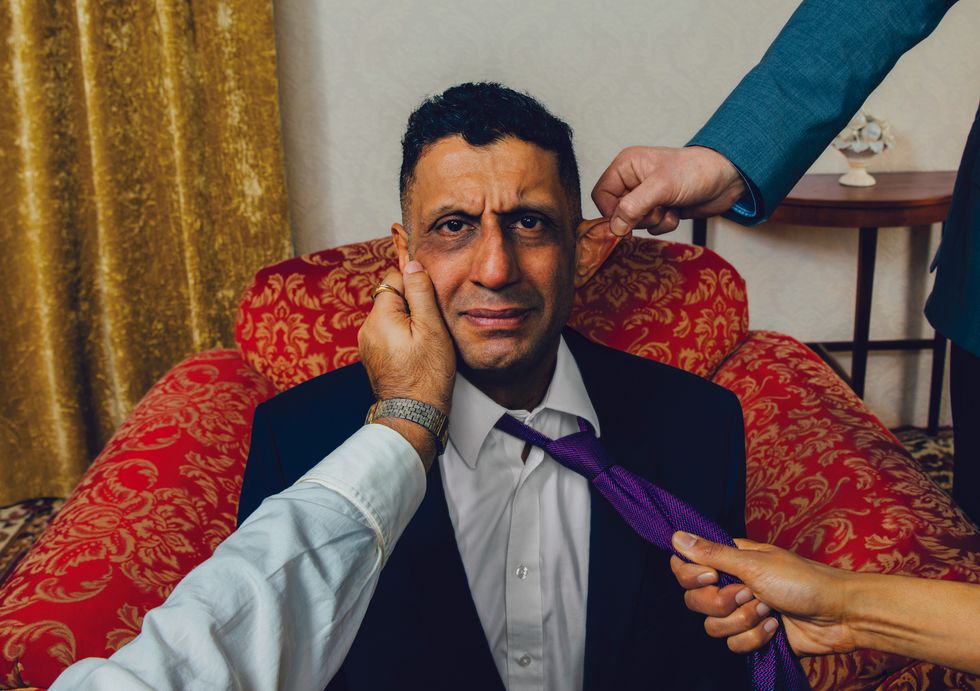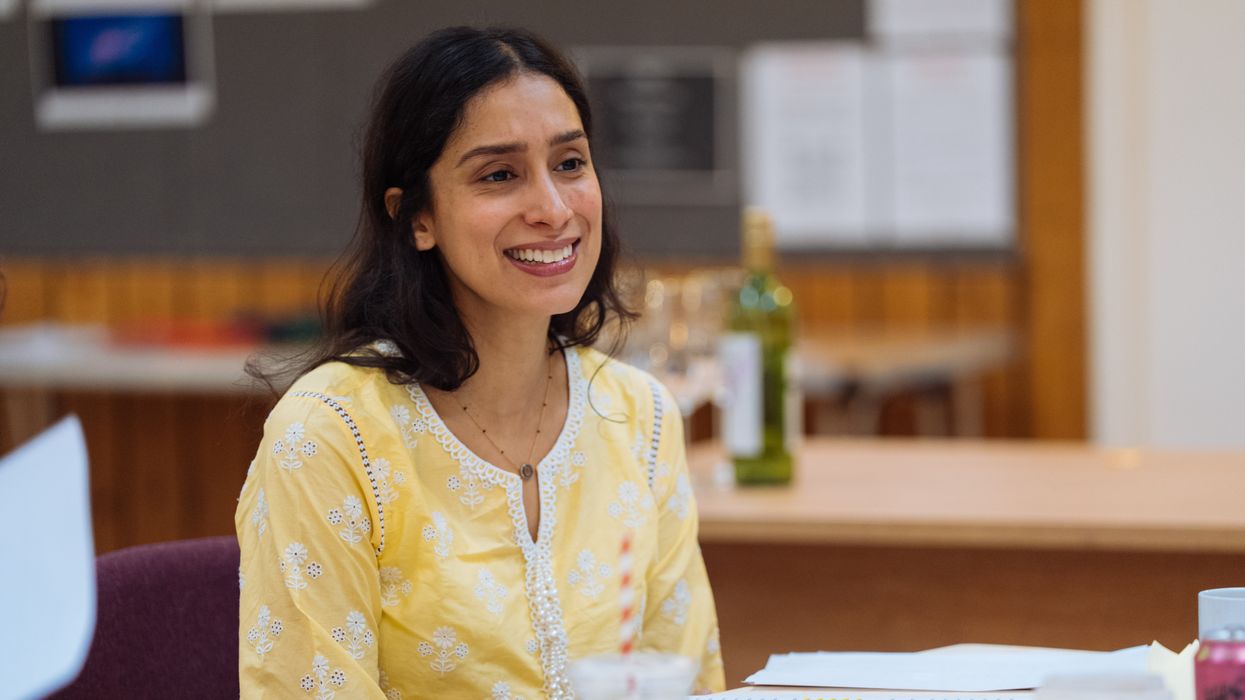THEATRE can be a space to explore views that are too ugly or complicated to express in everyday life, an Asian debut playwright has said.
Doctor-turned-writer Shaan Sahota’s play, The Estate, for the National Theatre, is a family political drama that explores relationships.
“I’m really interested in human behaviour, especially the stories people tell about themselves,” Sahota told Eastern Eye. “I’m fascinated by situations where really good people can behave quite badly. You see a lot of that in hospitals, whether it’s patients or staff – decent people just having bad days. That kind of complexity is also what draws me to writing family dramas.
“I find myself wondering: what are the limits of family? How can you behave and still be loved? What lines can you cross? Those are the kinds of questions I find myself asking.”
Directed by Daniel Raggett, the play’s cast features BAFTA-winning actor Adeel Akhtar in a lead role.
Sahota took two years to complete the play, although the original idea came to her in 2019. She said south Asian plays tended to focus on arranged marriages and racism, but rarely explore the “unaddressed issues” that exist within families.
She said, “I’m interested in whether fairness is possible in a family. If something feels deeply unfair, what do you actually do about it? There’s no court of law inside a family. Some wrongs don’t fall within the scope of legal justice. So, do you fight back? And if you do, how? What’s the right way to do it?
“Honestly, I don’t know the answer. That’s one of the reasons I wrote this play – to explore those questions. There’s also the emotional tension: we’ve all got that relative who pushes back hard against things that bother them, and they can be difficult to be around. But what if that person, the one who’s always protesting, actually has the best points? Or what if the most charming and likeable person in the family is the one holding a horrible point of view? That kind of messiness – where right and wrong don’t line up neatly with likability or love – is what really interests me.
At the centre of the story is Angad Singh (played by Akhtar), a high-achieving, public-facing figure whose carefully curated life begins to unravel. Singh is inspired by what the playwright calls “the opportunity to change a tradition – which is arguably incredibly sexist – but choosing not to.”

She described him as someone who sees himself as an underdog and a good man, even as he behaves increasingly badly. On combining politics and family in her debut play, Sahota said, “I chose politics as my protagonist’s profession because I wanted his bad behaviour at home to come at a cost in his public life. Politics is one of the few careers where you’re expected to have strong personal ethics, and where your personal virtue becomes part of your public image.
“I guess medicine has some of that too, but politics really felt like a space where private actions could have professional consequences. Dramatically, it also raises the stakes – it matters more if he does the right thing or not, because the fallout isn’t just personal, it’s public.
Sahota said the play’s themes – misogyny, tradition, identity – are serious; however, the tone of the play isn’t heavyhanded. “It’s quite light-hearted until suddenly it’s not. It plays with genre. It has comedic pacing and rhythm – you know, the family taking the piss out of each other – and then it shifts into something quite ugly and emotional. I’d call it a comedic tragedy,” she said.
Sahota added, “Everyone in the play thinks they are doing the right thing. That reflects how I see the world – people often have opposing views, but still think they are acting fairly and ethically. I didn’t want to write a play where I came across as the one who’s right. In fact, I wanted someone to watch it and find the characters who are most annoying like me.
“I’m more interested in how good people can disagree profoundly, and how they rationalise their behaviour.
“It’s not a neat debate. It’s about human weakness, pettiness, and how those things get wrapped in noble language.
“As for misogyny and tradition in the play – they don’t exactly collide in a neat way. I tried to give every character the best arguments they could possibly have to defend their views in the play. No one in the play sees themselves as misogynists. Even the character who might be benefiting from sexism genuinely believes he’s being fair, and he makes strong points when he’s challenged.”
The writer’s own background growing up in Southall shaped her perspective.
“I grew up in a Punjabi family in Southall, then went on to Oxford and Cambridge. Like my protagonist, I was exposed to worlds of extreme privilege and started feeling a bit embarrassed about where I came from. I even used to say I lived in Ealing, just to make it sound a bit more glamorous.”
The play was written while she pursued her career in medicine.
Sahota said, “It wasn’t a full-time job. I wrote it on weekends, in my spare time. For a long while, it was something I didn’t really share with anyone.” Eventually, it was picked up and developed by the National Theatre over two years.
Sahota said having her work staged at the National felt surreal. “It’s wild. Dream come true seems like an understatement – it feels like a fantasy. Even in my dreams, the play’s being performed in a school hall with a spotlight. I don’t think I’ve fully grasped it.”
She hoped the play’s specificity can reach beyond its south Asian setting. “These are children of 1970s immigrants. They’re not meant to represent all south Asians, or all Sikh families. This isn’t the ‘truth’ of our people. They’re just one strange family in crisis.”
She said, “I hope south Asians and children of immigrants from different backgrounds find something familiar in it. But also, I want people who thought theatre wasn’t for them to discover something in it too.”
The play offers no moral clarity or easy answers, according to Sahota.
“I hope people feel uncomfortable and don’t know what to think. That’s what life is like – it’s messy and complicated. That’s what I wanted the play to hold space for,” she concluded.





